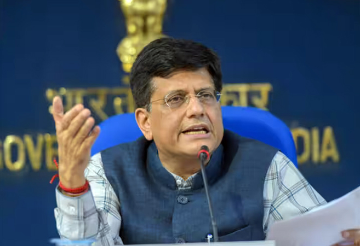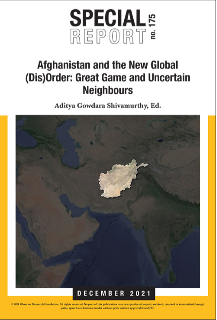Washington is of the opinion that Chinese President Xi Jinping’s Belt Road Initiative maybe associated with his country’s growing expansionist tendencies.
Hence, if the US is going to provide an alternative, it will be fairer, more transparent but will take some time as it demands detailed study and observations, according to Dr. Daniel Twining, Counsellor Director, Asia Programme of The German Marshall Fund of the United States. He was participating in an interaction at ORF, Kolkata Chapter, on 11 August, in which delegates from the German Marshal Fund also took part.
The discussion went on to the ‘perception of dominance’. This perception of an existing vacuum is subjective and multi layered. Therefore, it is very important to be cognizant of each other’s perceptions, if anything constructive is to be undertaken.
The perception about Bay of Bengal as an independent geostrategic space assumes importance in any discussion on connectivity in South and South East Asia. From Washington’s point of view, Bay of Bengal is strategically important as it is linked to the Suez Canal and 70% of Chinese cargo moves through it, Dr Twining pointed out. In this context, the Kaladan multimodal project is crucial. However, the maritime security here is lagging behind as the delegates pointed out, “the Chinese are coming and they are coming fast.” China is moving in aggressively wherever it finds an opening and has a tendency to encroach upon weaker countries. Hence, the focus must be on how to make societies more resilient against Chinese intrusions. Mistrust in the region is growing steadily.
US views India as a key player in South Asia, Dr. Twining said. A variety of joint exercises are performed by the US and Indian Navy such as ‘White Shipping’. There may be some issues of incompatibility between the two but maritime initiatives are underway and the basic foundation for mutual interaction is there. There is promise of a few investments from the US private sector. The way in which US viewed this Bay of Bengal space has undergone significant changes.
Australia, a strong ally of the US is interested in having maritime interactions with India but they are cautious and do not want to undertake any naval competition with China.
The interaction also focused on the increasingly significant and growing land connectivities that is creating new strategic regions. The promising collaboration of the key South Asian players like the BBIN countries along with Myanmar has expanded its realm of interaction and influence over Southeast Asia.
The interaction was fruitful and enriching, providing US insights on a number of important and contested South and South East Asian issues. The discussion ended on a note of cordiality and a promise of further interactions in the future.
This report is prepared by Sohini Bose and Sohini Nayak, Research Interns, ORF Kolkata.
The views expressed above belong to the author(s). ORF research and analyses now available on Telegram! Click here to access our curated content — blogs, longforms and interviews.




 PREV
PREV

